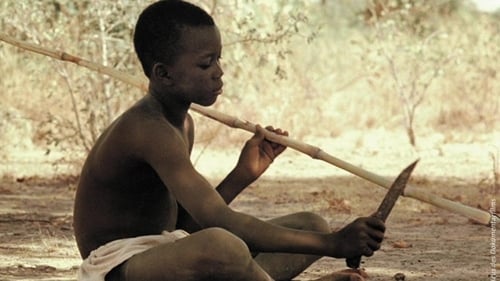
A blacksmith falls off his bicycle when he tries to avoid a tortoise which crosses his path. He brings the animal home to his twelve year old son, Rabi, who becomes so fascinated that he forgets his chores at this father's shop. When the angry smith removes the tortoise, Rabi's grandfather, Pusga, helps Rabi find a larger one to consol the boy. Rabi wants to tame the animal and this new obsession leads him to defy parental authority. Pusga gently opens the boy's eyes to the visible and invisible ways of nature. Rabi starts to understand liberty, responsibility and respect for life. In turn he awakens long buried sentiments in the grandfather.

Tinga
In the Mossi culture, one of the rites attending the birth of a child and its induction as a new member of the community involves the burial of the placenta. The space in which the placenta is buried is called 'Zan Boko' - a phrase which connotes the religious, cultural and affective relations that bind the child to the land and that embraces the notions of 'rootedness' and 'belonging'. Kaboré tells the story of Tinga, who resists the encroaching urbanization of his native territory. The specific rhythms and vision of the rural community, including its values, social relationship, and individual & collective destinies, are altered when a city is planted on the edge of an ancient native village.

Tinga
Em tempos pré-coloniais, um vendedor ambulante, ao cruzar a savana, encontra uma criança inconsciente, deitada no meio do mato. O menino, quando volta a si, está mudo e não consegue explicar quem ele é. O vendedor o deixa com uma família na vila mais próxima. Depois de uma procura pelos seus pais, a família o adota, dando-lhe o nome Wend Kuuni (dom de Deus) e uma irmã amorosa, com quem ele cria laços. A fala de Wend Kuuni só volta quando ele é testemunha de um evento trágico que o leva a revelar sua própria história de dor.


